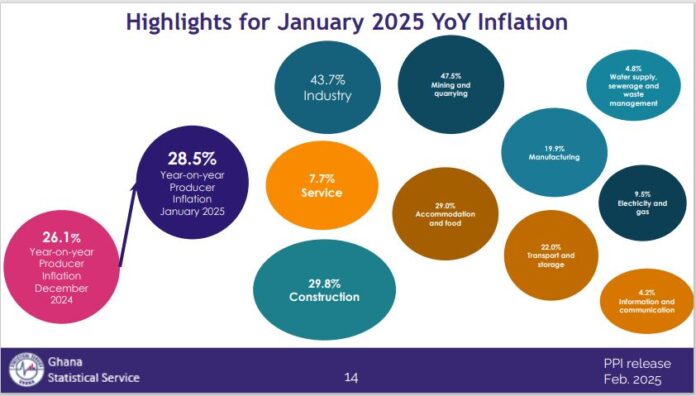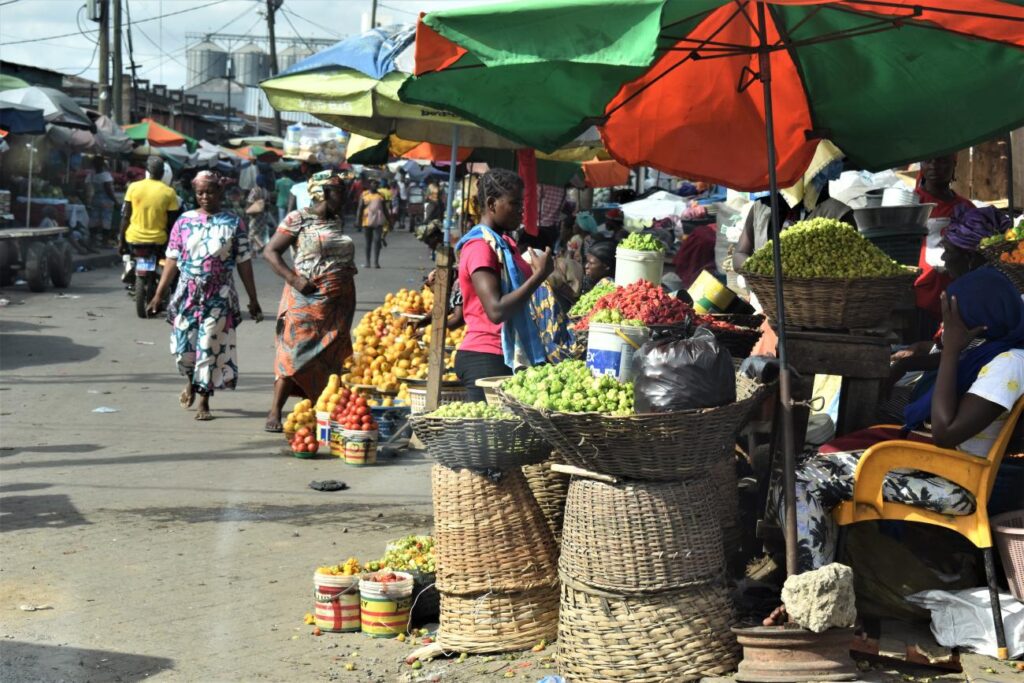Producer Price Inflation hits 28.5% in January 2025

In January 2025, producer price inflation soared to a staggering 28.5%, signaling an increase in the prices of goods and services produced by domestic producers.
According to data from the Ghana Statistical Service, the year-on-year inflation rate at ex-factory prices for all goods and services hit 28.5% in January up from the recorded 26.1% in December 2024.
For the month-on-month producer inflation between December 2024 and January 2025, it was 3.6% higher than the record in December 2024.
The industry sector, excluding the construction sector in the PPI, increased from 40.2% in December 2024 to 43.7% in January 2025.
The rate in the construction sector also increased to 29.8% in January 2025. The Services sector rate was 7.7% in January 2025.
Other services’ records are as follows;
Mining and quarrying (47.5%), Construction (29.8%), Accommodation and food service activities (29.0%), all of them recording inflation rates above the national average of (28.5%).
However, Water supply, sewerage, and waste management activity recorded the lowest rate of 4.8% in January 2025.
Now talking about the manufacturing sector In January 2025, three of the 23 major groups in the manufacturing sub-sector recorded inflation rates higher than the Sector’s average of 19.9%.

Basic metals manufacturing recorded the highest inflation rate of 49.5%, followed by the Manufacture of motor vehicles, trailers and semi-trailers at 35.8 percent, and the manufacture of leather and related products.
The Services sub-sector, producer price inflation in the Transport and Storage sub-sector decreased by 1.1 percentage points from 23.1% in December 2024 to 22.0% in January 2025.
Accommodation and Food Services sub-sector rate also decreased by 1.4 percentage points from 30.4% in December 2024 to 29.0% in January 2025.
And finally, the Information and Communication sub-sector recorded an inflation rate of 4.2% for January 2025. This surge in inflation can have a ripple effect on the entire economy, influencing everything from consumer prices to business production costs. To put this in basic language, when producer prices rise, it can lead to higher costs for businesses, which may then pass these costs on to consumers in the form of higher prices for goods and services. This, in turn, can impact consumer spending and ultimately, the overall health of the economy.

 Shatta Wale Issues Warning to Richard Nii Armah Quaye
Shatta Wale Issues Warning to Richard Nii Armah Quaye  Ghana achieves 97% reduction in malaria deaths
Ghana achieves 97% reduction in malaria deaths  Davido Adjudged Artiste of the Year at 2025 Headies Awards
Davido Adjudged Artiste of the Year at 2025 Headies Awards  Kobby Kyei Unveils The #BoysLivesMatterToo Initiative
Kobby Kyei Unveils The #BoysLivesMatterToo Initiative